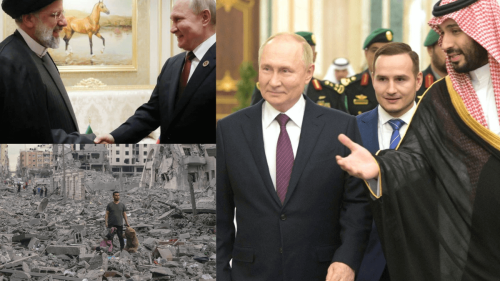Muslim doctors aim to fill humanitarian void
While the world has seemingly forgotten the hundreds of thousands of suffering Chechens, there is at least one who remembers them almost every day. Dr. Shahid Siddiqui, a successful heart specialist in Napa, California, has become consumed with the welfare of Muslim refugees in Russia.
Fortunately, Dr. Siddiqui is not alone in his worries. He is among 30 physicians from all over the world who have come together to form Doctors For Global Relief, an organization that aims to help alleviate the suffering of Muslims everywhere.
Just six months old, DFGR has already established some professional medical care for thousands of refugees living in makeshift camps in the Russian republic of Ingushetia.
These refugees are mostly women and children under the age of 16 who face their second winter in 40x20 army tents. There is no running water or electricity in or around their tents, some of which house as many as 50 people. A few of the lucky ones have found empty livestock barns or abandoned box car trains for shelter.
Having recently returned from a fact-finding trip there, Dr. Imtiaz Khan of DFGR describes the conditions as "horrid". Surprisingly, he says there are only a few relief organizations currently working to help the refugees.
Still, many of these Chechens prefer the safety of these makeshift homes in Ingushetia to the haphazard violence in their home republic. The camps were set up after renewed fighting between Russian troops and Chechen separatists forced some 200,000 to flee their homes.
Western governments including the United States have been vocal in their criticism of the Russian government's assault on Chechnya, but little more has been done to alleviate their suffering.
Before DFGR, there were only a handful of doctors working to treat the refugees. Some doctors are refugees themselves and are stressed from the seemingly insurmountable work. Other medical relief organizations have completely ignored the situation there, or have not made it their priority to assist the Chechens.
But as Dr. Siddiqui explains, many of these relief organizations are not effective in these areas, or avoid such places as Ingushetia altogether because of issues of logistics and safety.
Among them is the International Medical Corps (IMC); a Los Angeles based medical relief agency, which assessed the medical, needs of the Chechen refugees this past February. In a report on the camps, an IMC team found a lack of organized health care within 20 refugee settlements. They were able to establish some mobile units, but admit that their efforts have been hampered by "considerable security constraints."
The fact of the matter remains that Chechen refugees need immediate medical and psychological care in "epidemic proportions," said Dr. Khan. Many simple viruses turn into more serious conditions because proper treatment and medicines are not readily available. There are no statistics available on the number of death in these camps, but malnutrition, dehydration and disease run rampant. Still others suffer from anxiety, depression and nervousness as a result of having witnessed widespread violence firsthand.
United Nations officials recently said they feared what a second harsh winter could do to the Chechens, including those in neighboring Ingushetia.
"The onset of winter and the scarce resources available make a humanitarian tragedy a real possibility," U.N. High Commissioner for Human Rights Mary Robinson said in an interview with the Associated Press earlier this month.
So far, DFGR has lined up volunteer physicians who will rotate on two to three week assignments to treat Chechen refugees. Many of these volunteers will be using their vacation time and money to pay for their trips. The organization will also use its resources to train and pay local doctors to work in the camps.
Dr. Siddiqui hopes that DFGR will fill a void of humanitarian relief in war-torn regions and criticized other organizations for not doing more in Ingushetia and other areas where many Muslims suffer.
"There are no Doctors Without Borders in Kashmir, Iraq, Palestine or Chechnya," said Dr. Siddiqui about the international relief organization. "They say they have no borders, but they have plenty."
DFGR has teamed up with other Islamic relief organizations such as Benevolence International Foundation and Mercy International, two agencies that have provided other forms of humanitarian relief to Muslims all over the world.
DFGR has been successful in recruiting doctors from all over the world, including countries such as South Africa, Pakistan, Malaysia and the United States. Much of their funding comes from the pockets of the volunteers themselves and some fundraising has been done in mosques and community centers in Boston and Pittsburgh. Still, Dr. Siddiqui fears those resources will not suffice. He is appealing to doctors, nurses and others who could provide medical assistance.
Headquartered in Chicago, DFGR has plans to open offices in London, Dubai and India so that they can dispatch medical professionals more efficiently in times of crisis. They also plan to launch a web site as part of their ongoing effort to raise additional funds.
Dr. Siddiqui says there is only one source of motivation for him and others in the group. "Our soul purpose is to please Allah, and this is the bottom line."
(DFGR can be reached at 1-888-969-DFGR. Their website is located at http://www.dfgr.org)

















